Xanthan gum is a polysaccharide gum produced by the fermentation of glucose, sucrose, or lactose with Xanthomonas campestris bacteria. It is a common ingredient in food products as an emulsifier, stabilizer, and thickener. However, only some have them.
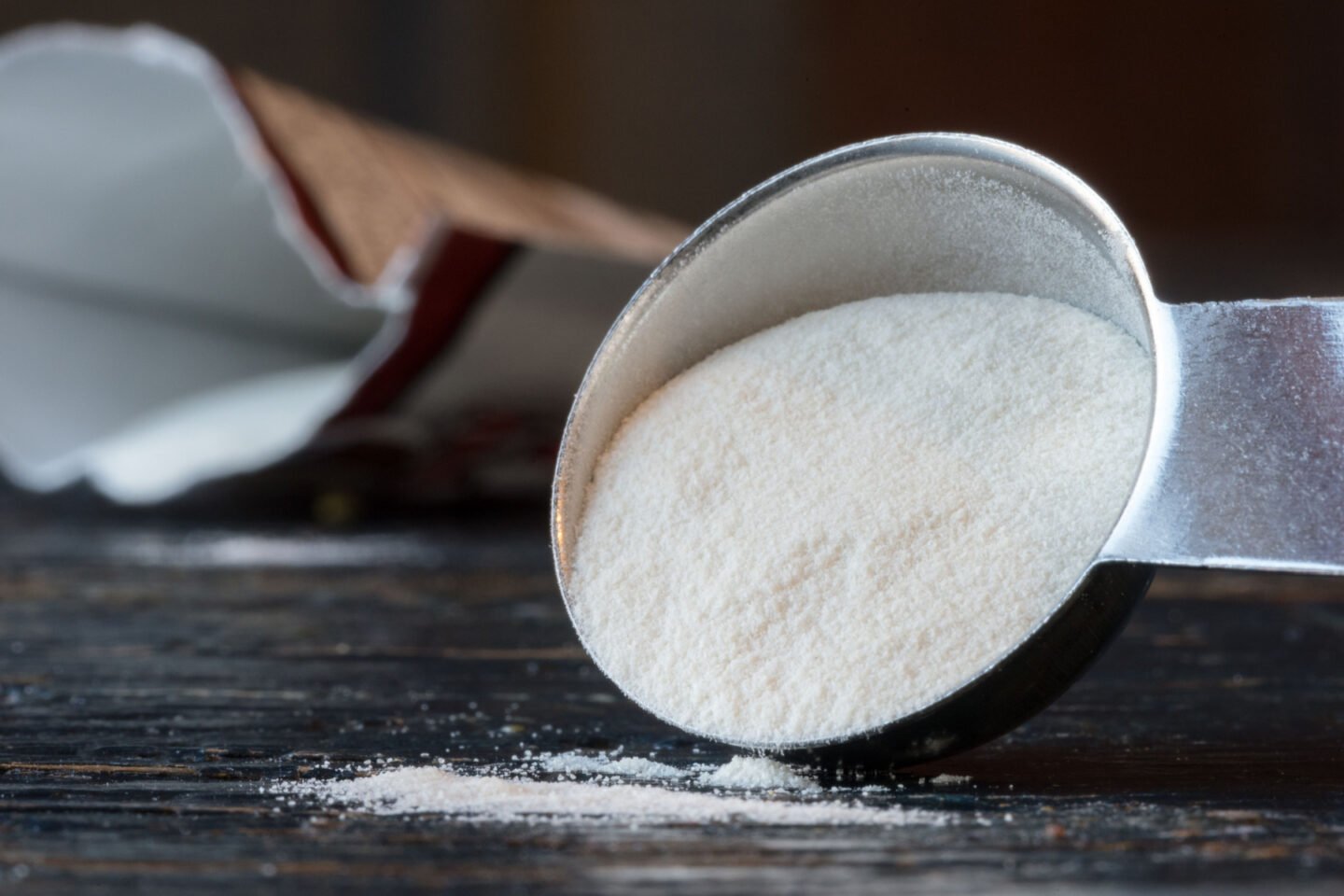
Psyllium husk, cornstarch, unflavored gelatin, and egg whites are the best xanthan gum substitutes you probably already have at home. Other substitutes include agar, chia seeds, ground flax seeds, arrowroot powder, pectin, konjac powder, and tapioca starch.
Read on as I discuss how you could use these xanthan gum substitutes.
Table of Contents
Best Xanthan Gum Substitute
1. Psyllium Husk
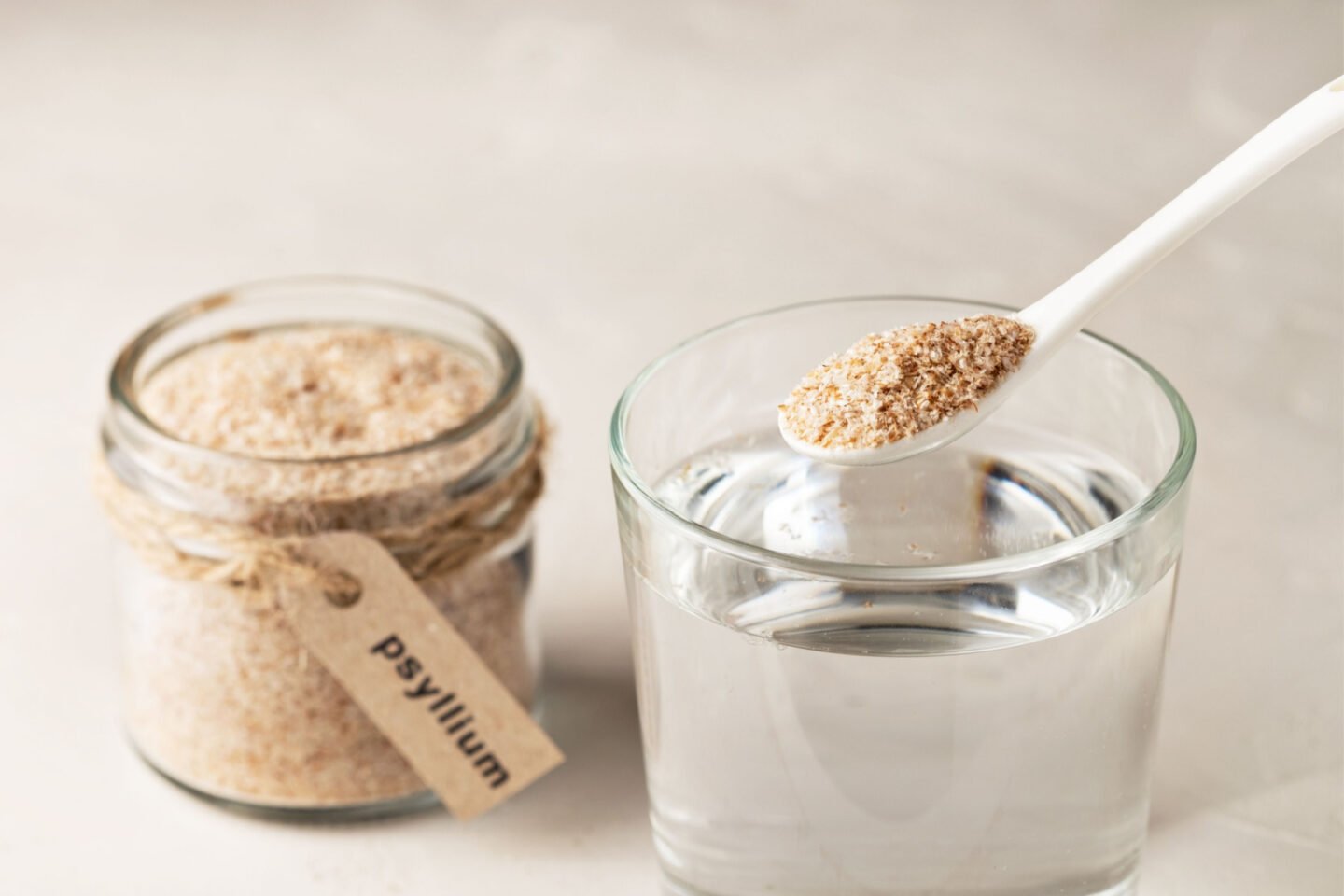
Psyllium husk is a fiber derived from the seeds of the Plantago ovata plant. It is a soluble fiber that can absorb up to 50 times its weight in water, making it an ideal supplement for people who have difficulty getting enough fiber in their regular diet.
In cooking and baking, psyllium husk is an excellent thickening agent as it holds huge amounts of water. When used as a substitute for xanthan gum, remember that psyllium husk is a type of fiber that will cause digestive dysfunction when taken in massive amounts.
Psyllium husk is the best xanthan gum substitute, as it is also gluten-free and keto-friendly. But the main problem with using psyllium husk instead of xanthan gum is that you need more of it.
1 tablespoon of xanthan gum = 2 tablespoons of psyllium husk
2. Corn Starch
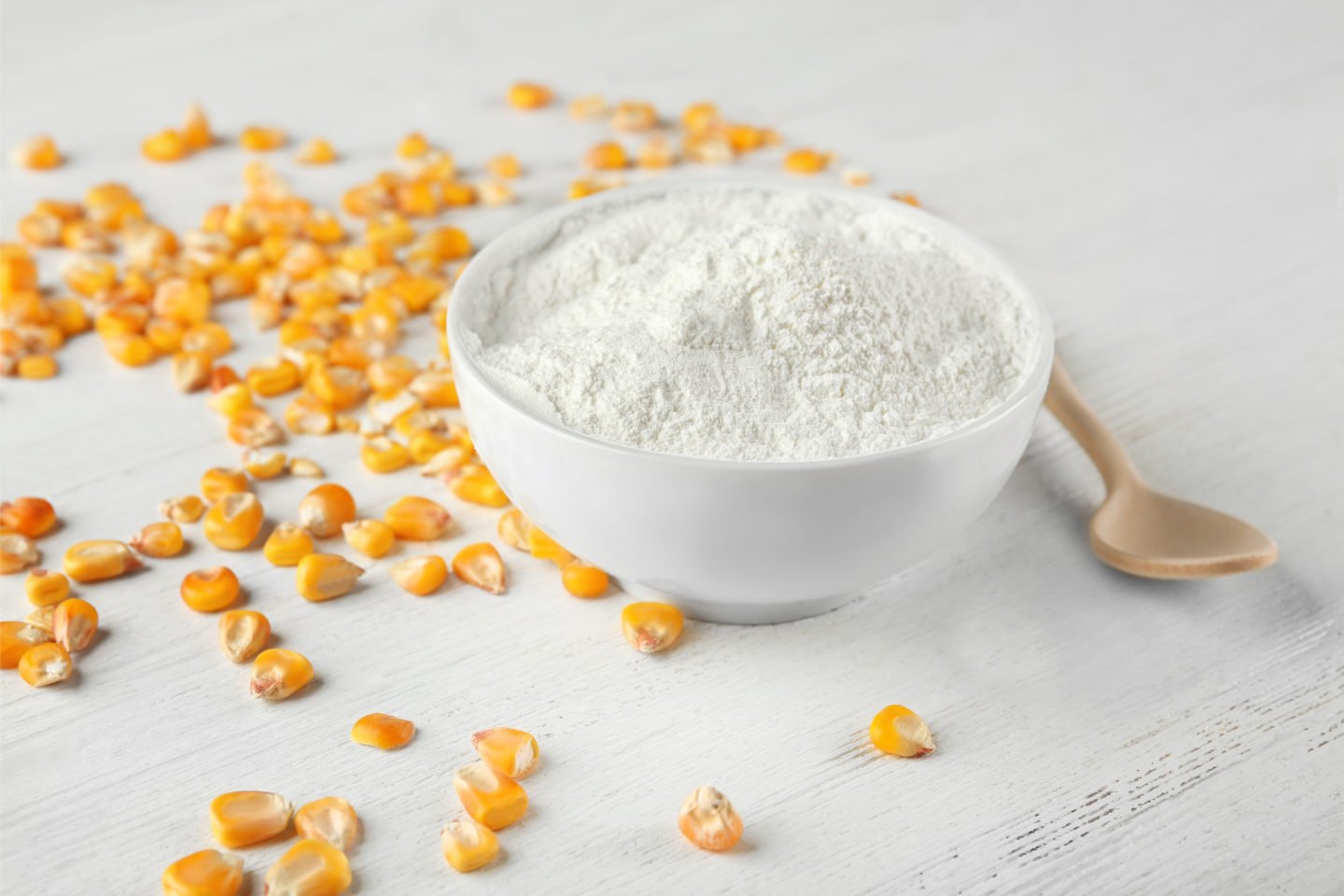
Corn starch is a type of starch derived from the endosperm of corn kernels. It is a white, powdery substance made up of primary carbohydrates and is a common ingredient in cooking and baking as a thickening agent.
If you don’t have xanthan gum at home, you probably have corn starch that you can use as a substitute. Although corn starch is highly accessible and affordable, it is not the best xanthan gum substitute if you’re looking for more stability.
Nevertheless, cornstarch is an excellent thickening agent that you can use for recipes that require short-term thickening. Like xanthan gum powder, cornstarch can be used in gluten-free recipes, but it can't be used on a keto diet because it has a lot of carbs.
1 tablespoon of xanthan gum powder = 1 tablespoon of cornstarch
3. Unflavored Gelatin
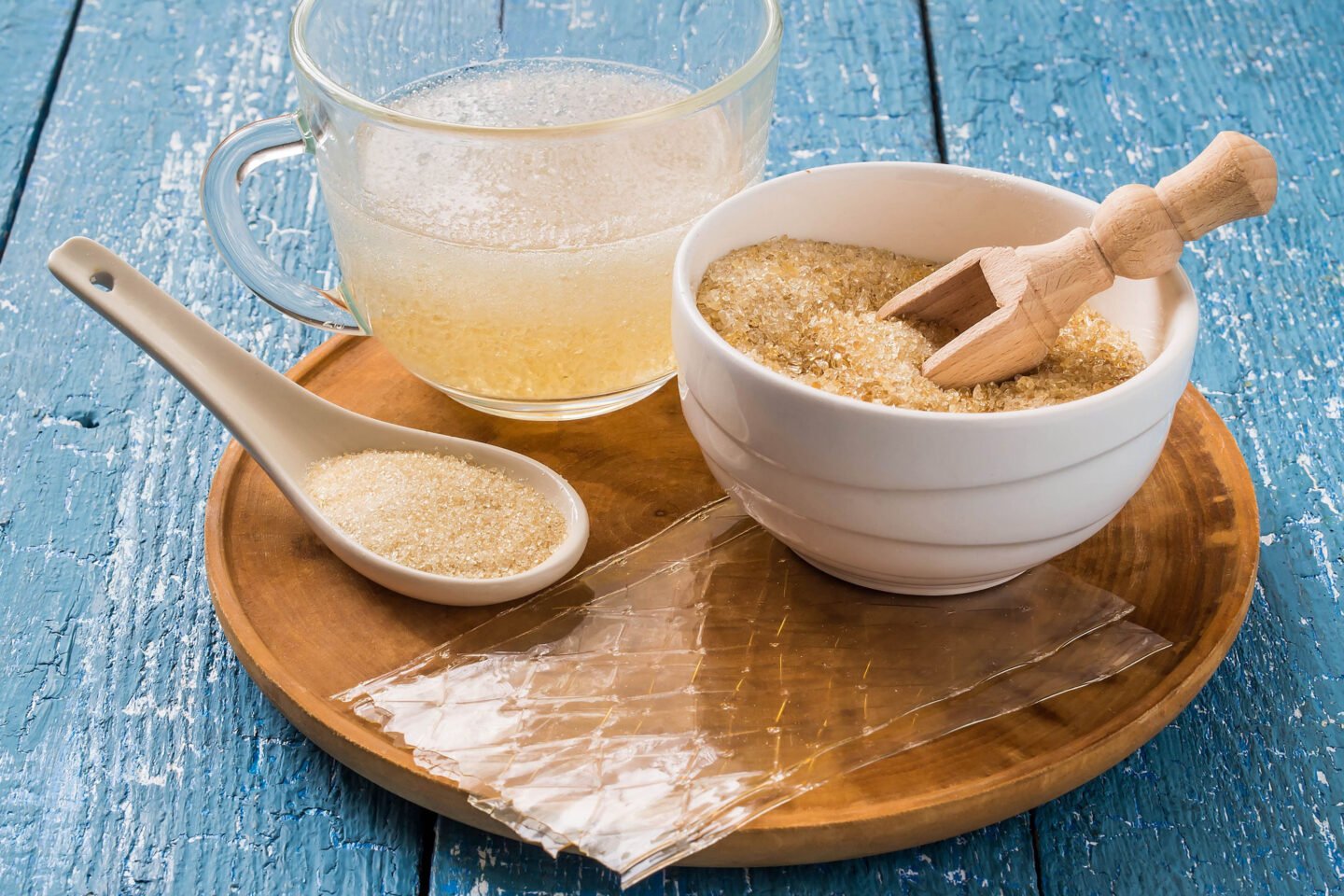
Gelatin is a protein derived from animal sources used as a thickening agent in baking. People use gelatin in many desserts, such as jello and marshmallows, and in baking recipes, such as cakes, pies, and pastries.
Gelatin helps give structure and stability to baked goods, glazes, and icings to enhance the appearance and flavor of desserts. It’s important to remember that you should always use unflavored gelatin as a xanthan gum substitute to avoid altering the recipe’s taste.
The main drawback to gelatin is that it is not vegan, as it comes from animal sources. Nevertheless, it provides the stability you would need in any baked recipe.
1 part of xanthan gum = 2 parts of unflavored gelatin
4. Egg Whites
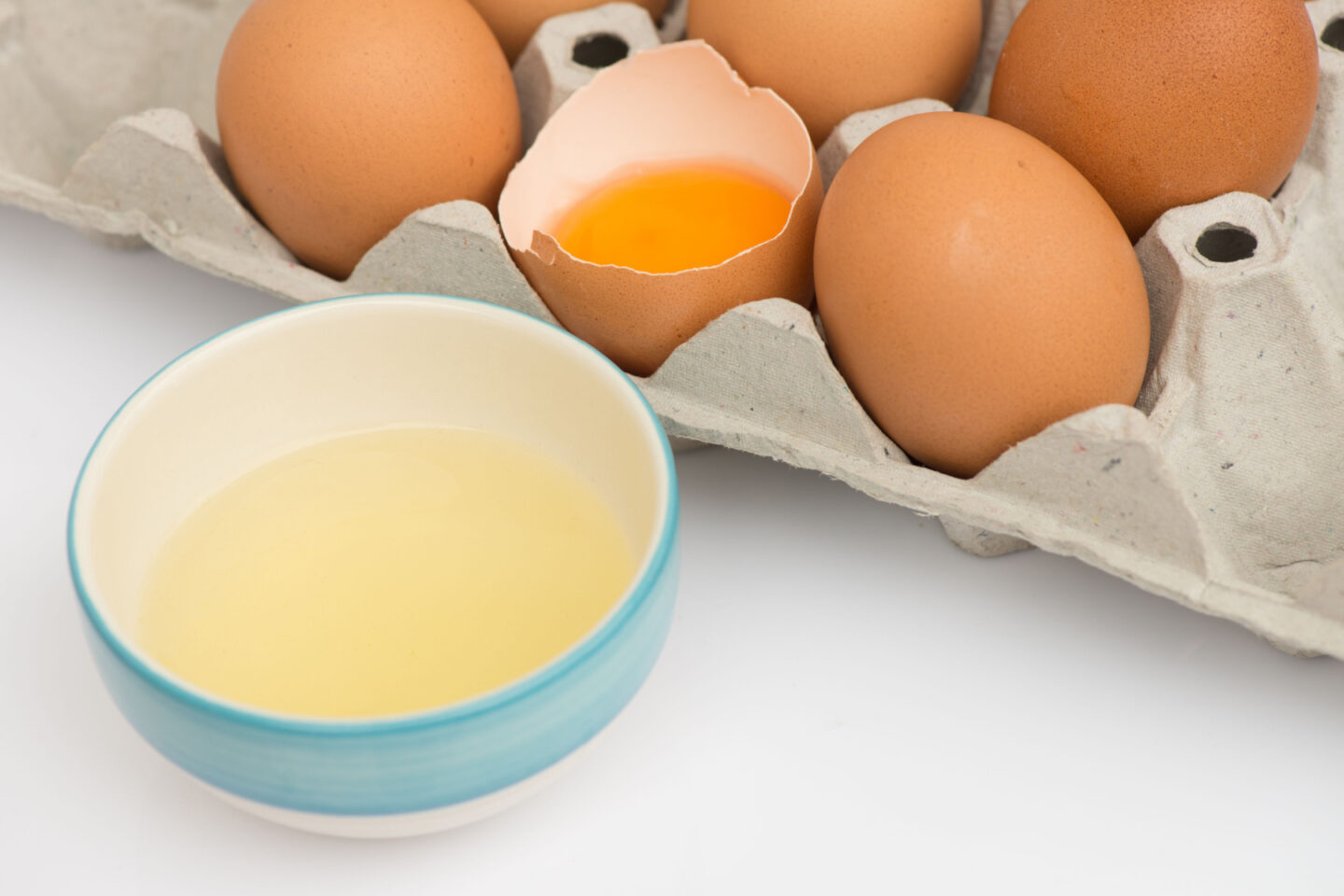
Egg whites are a common ingredient in creating a fluffy texture in cakes, cookies, and meringues. Egg white adds structure and stability to baked goods such as muffins and pastries.
It is one of the best xanthan gum substitutes due to its stabilizing and binding abilities. Egg whites are also highly accessible and affordable; you probably have them in your fridge.
Egg white is also the only xanthan gum substitute that has real nutrients. It can be used on the keto diet and, like xanthan gum, is gluten-free.
1 tablespoon of xanthan gum = 1 egg white (from one egg)
5. Agar Agar
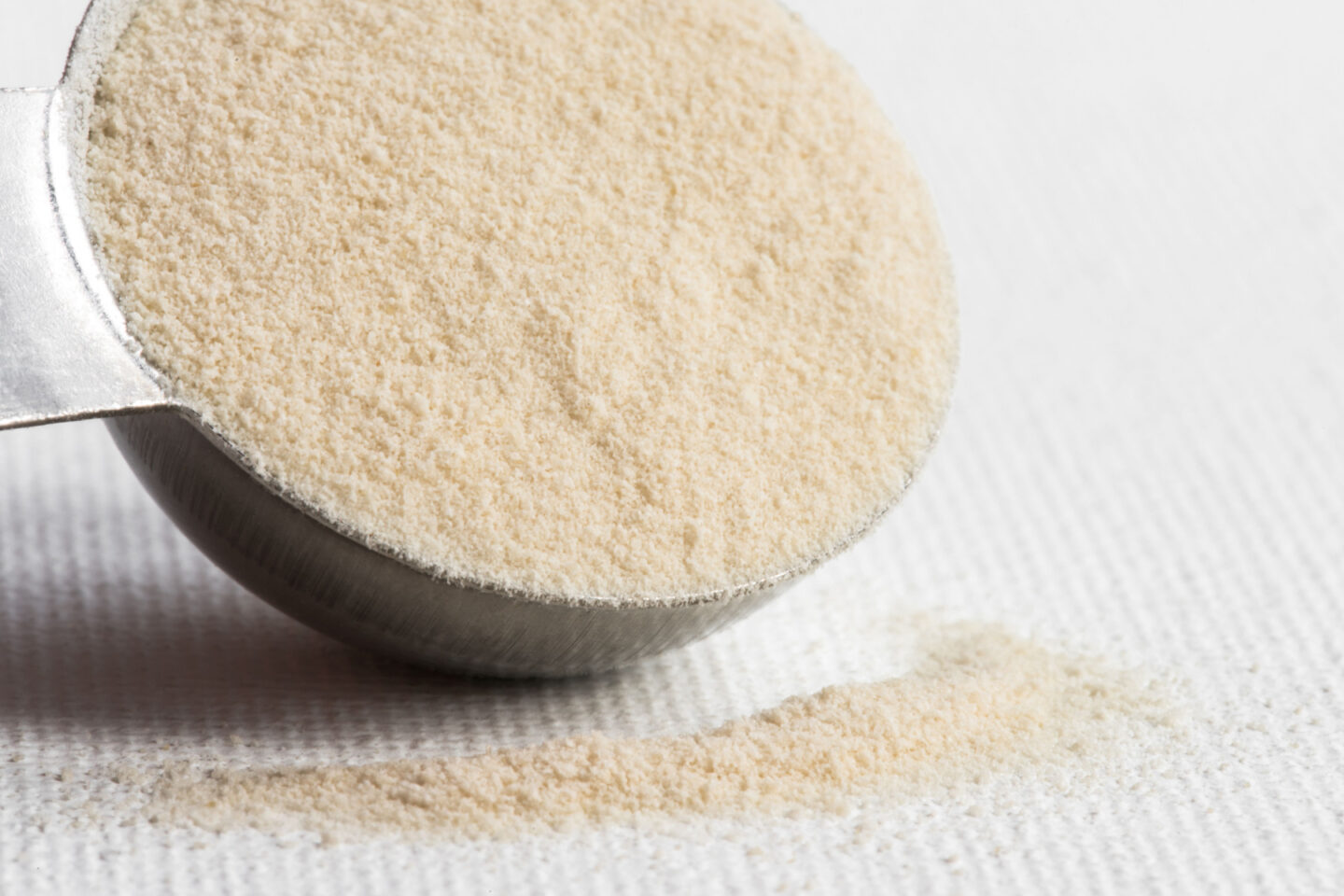
Agar agar is another gelling agent commonly used to thicken sauces and make jams and jellies. Unlike gelatin, agar is vegan as it comes from seaweed and is gluten-free.
It’s important to note that agar tends to set into a firmer, more solid set that you can’t compare with xanthan gum and gelatin. However, agar is still one of the best substitutes due to its accessibility and affordability.
The major downside to using agar as a xanthan gum substitute is the need to prepare it beforehand. To prepare the agar, place one part agar and four parts water in a pan and dissolve over low heat.
1 tablespoon of xanthan gum = 1 tablespoon of agar mixture
6. Guar Gum
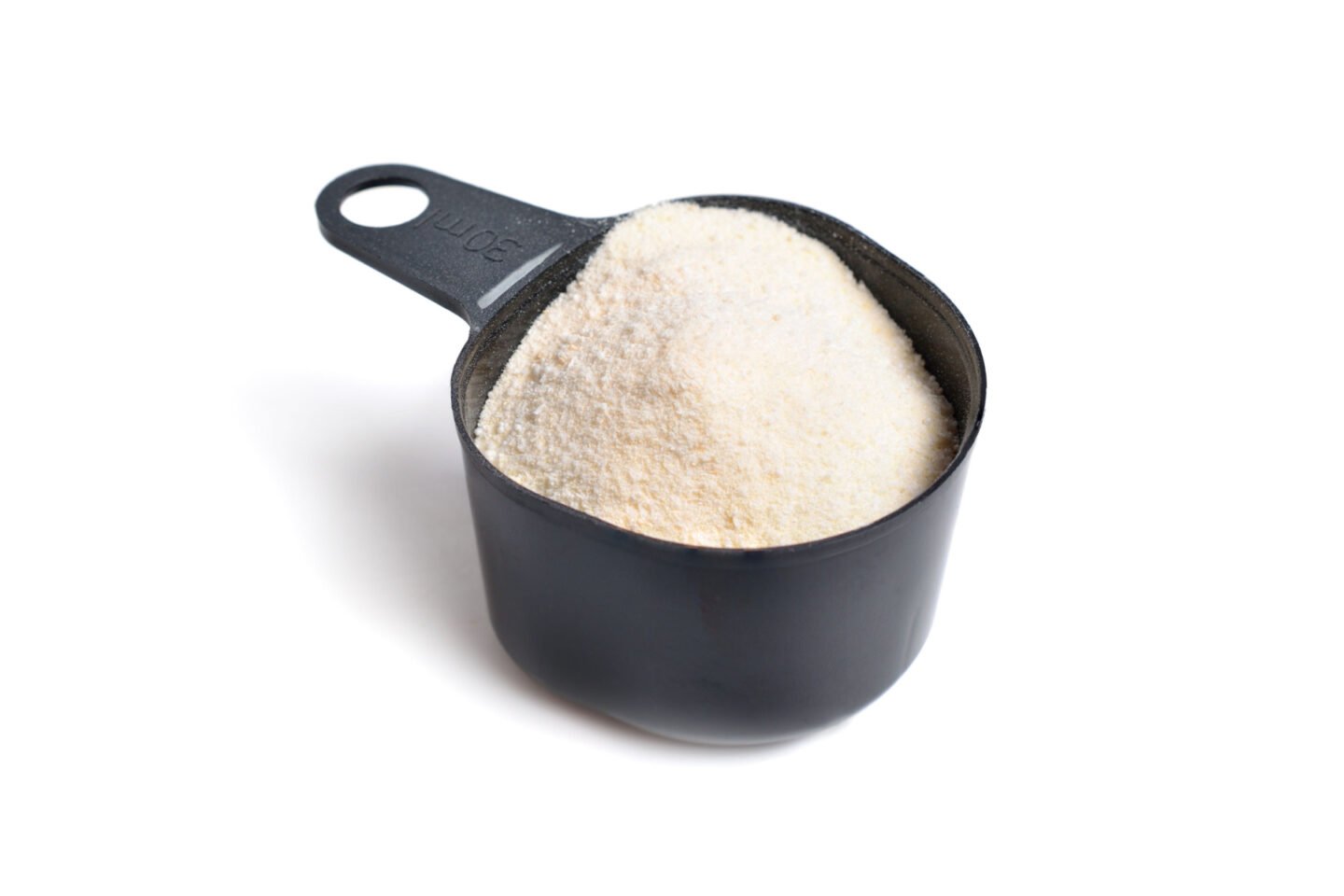
Guar gum is a natural fiber derived from the guar bean. It is a common thickener or stabilizer in baking. It helps bind ingredients together and adds texture, elasticity, and moisture to baked goods such as bread, cookies, cakes, and pastries.
Like xanthan gum, guar gum is a famous replacement for gluten in gluten-free baking. However, like xanthan gum powder, guar gum is not a very common ingredient in your pantry.
Also, xanthan gum works better than guar gum as a stabilizer, so you need to use more than the recipe says.
1 tablespoon of xanthan gum = 1 and ½ tablespoon of guar gum
Mix guar gum with oil (if the recipe calls for it, such as in salad dressing) before adding the remaining liquid ingredients.
7. Ground Chia Seeds
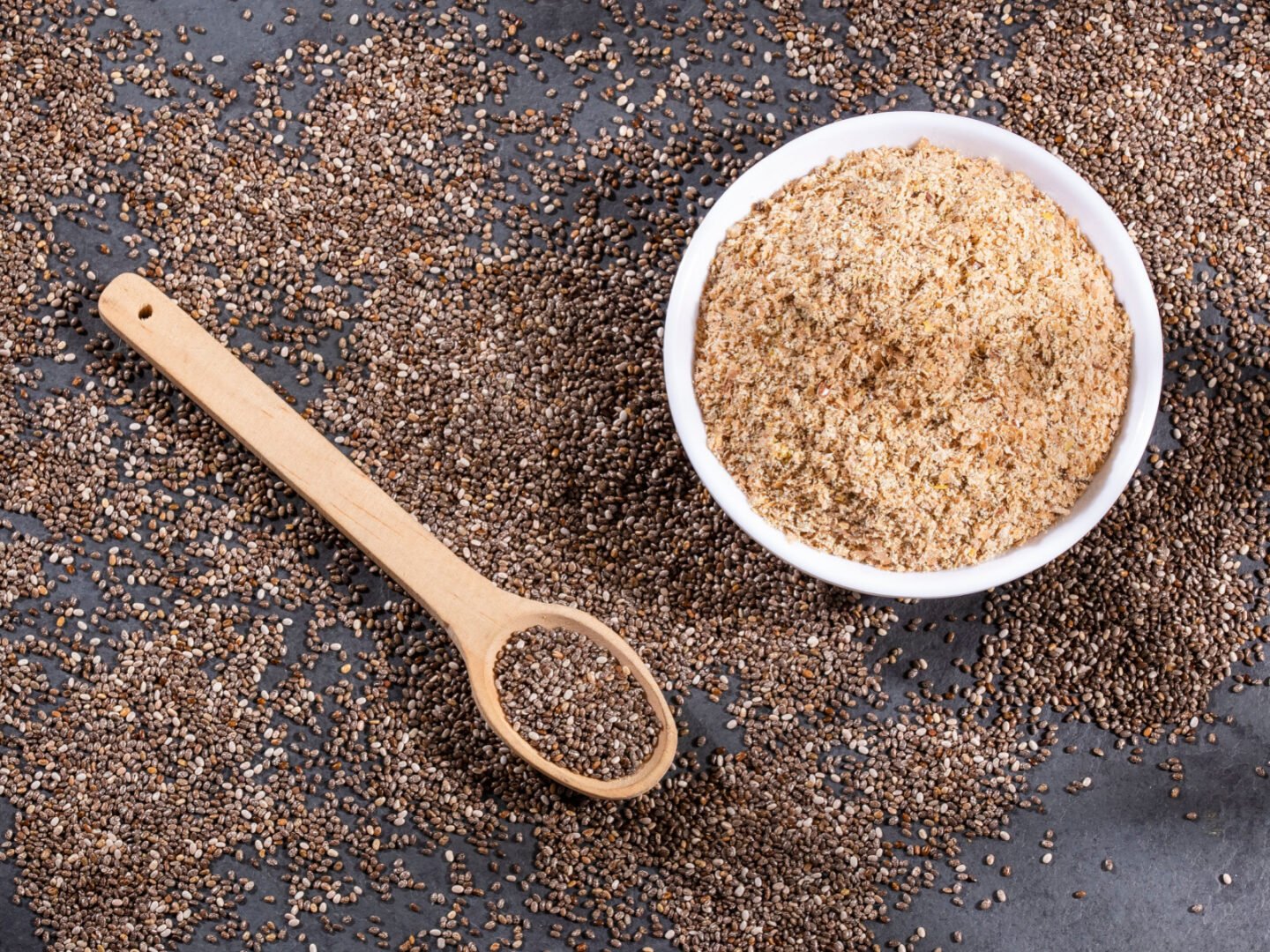
While you can use whole chia seeds to substitute xanthan gum, I suggest using ground chia seeds for a more accurate measurement. Chia seeds create a gel when submerged in water, which has a stabilizing effect when used in baking.
One of the advantages of using chia seed is the benefits it provides. Chia seeds are naturally gluten-free and suitable for your keto diet.
1 tablespoon of xanthan gum = 1 tablespoon of ground chia seed
Soak the chia seed in two tablespoons of warm water for at least 10 minutes before using.
8. Ground Flax Seeds
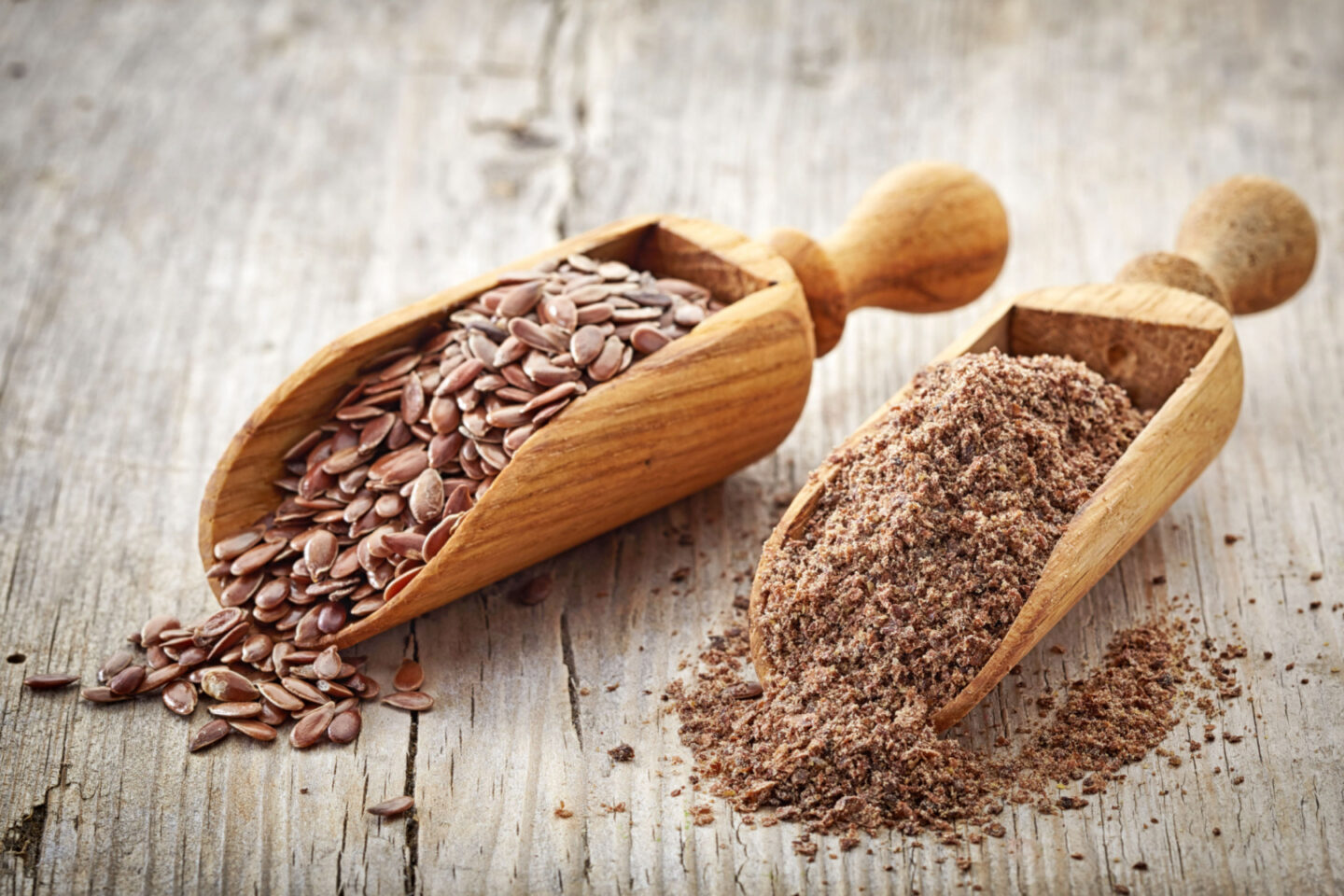
Although whole flaxseed does not absorb water, ground flaxseed does. This means you should only use ground flax seeds to substitute xanthan gum. Once they absorb water, the ground flax seeds act as a stabilizing and thickening agent.
It’s important to remember that, like chia seeds, you should soak ground flax seeds in warm water and wait a minimum of 10 minutes for them to bloom before using.
1 tablespoon of xanthan gum = 1 tablespoon of ground flax seeds
9. Arrowroot Flour
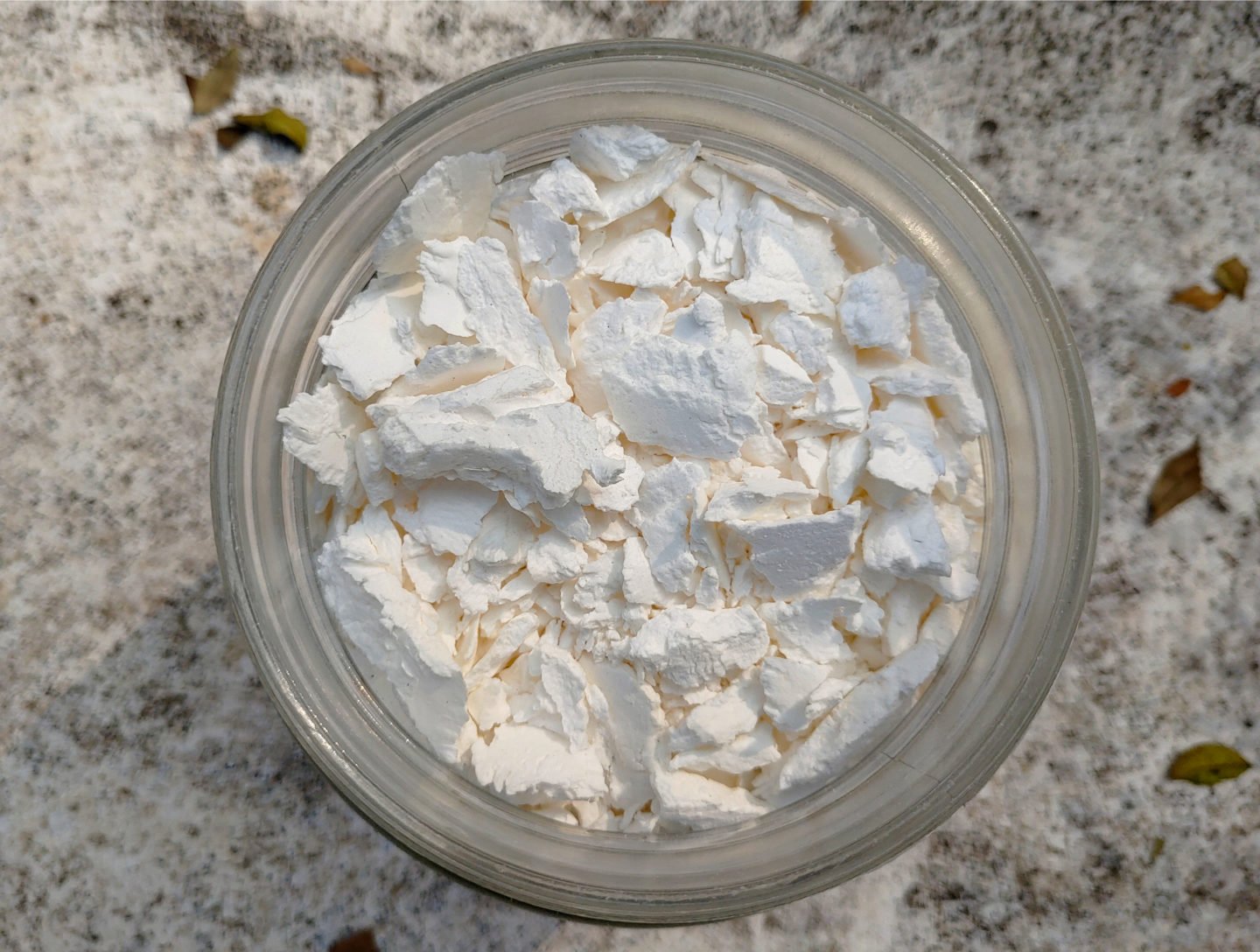
Arrowroot flour or powder is a fine, white, starchy flour made from the tuberous root of the arrowroot plant, which grows in tropical areas.
It is gluten-free, grain-free, and relatively low in carbohydrates, making it a popular alternative to wheat flour for those with allergies or seeking a gluten-free baking option.
Arrowroot flour is an excellent alternative if you want crunchier cookies and other pastries.
1 tablespoon of xanthan gum = 1 tablespoon of arrowroot powder
10. Pectin
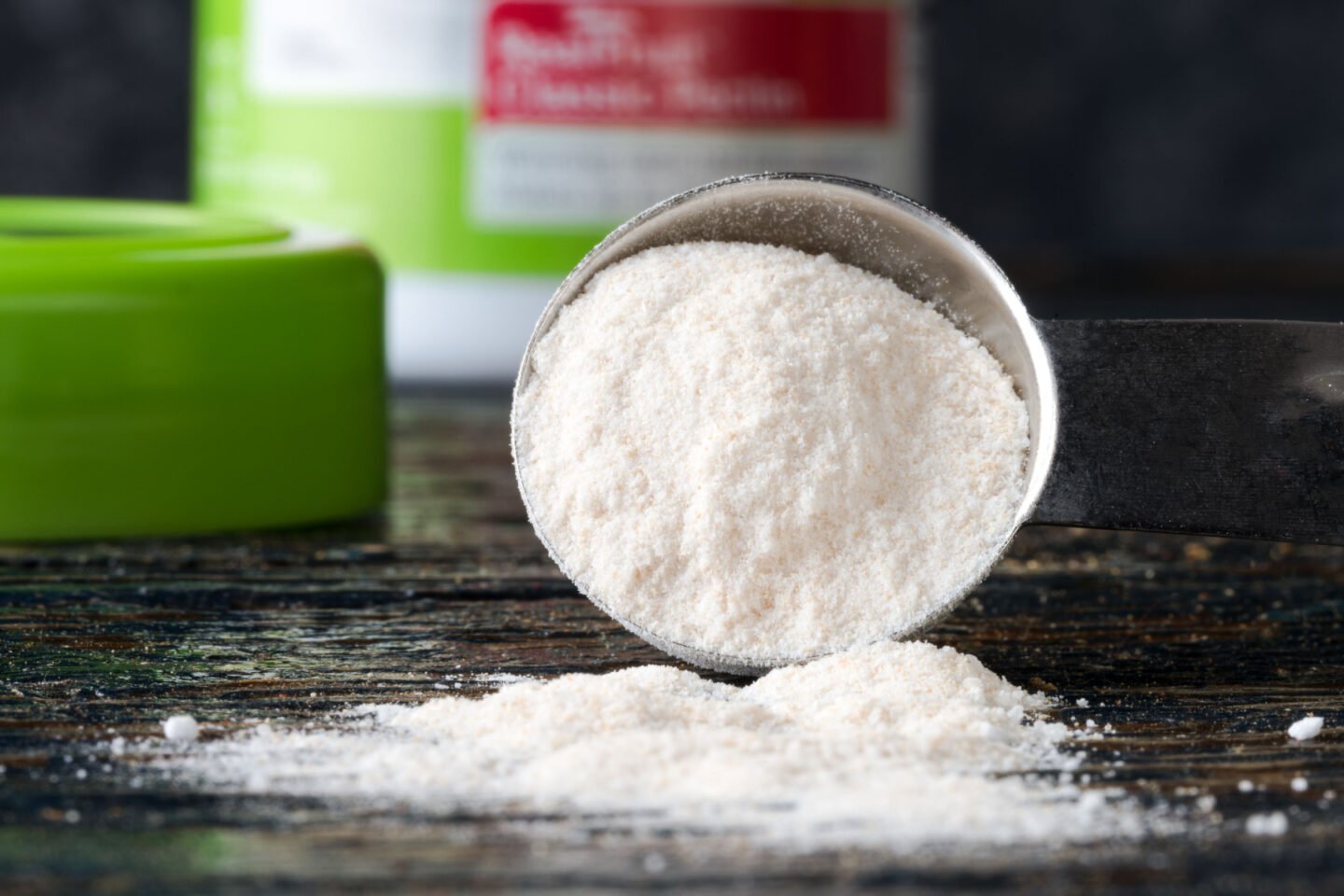
Pectin is a naturally occurring polysaccharide found in many fruits and vegetables. You can use it in baking as a thickening and gelling agent, creating an even texture and stability in jams, jellies, and other baked goods such as cakes, pies, and pastries.
When using pectin to substitute xanthan gum, buy the type that suits your recipe. Some pectin products gel quickly, while others need longer cooking times.
1 tablespoon of xanthan gum = ½ tablespoon of pectin
You can increase the substitution ratio depending on the quality.
11. Konjac Powder
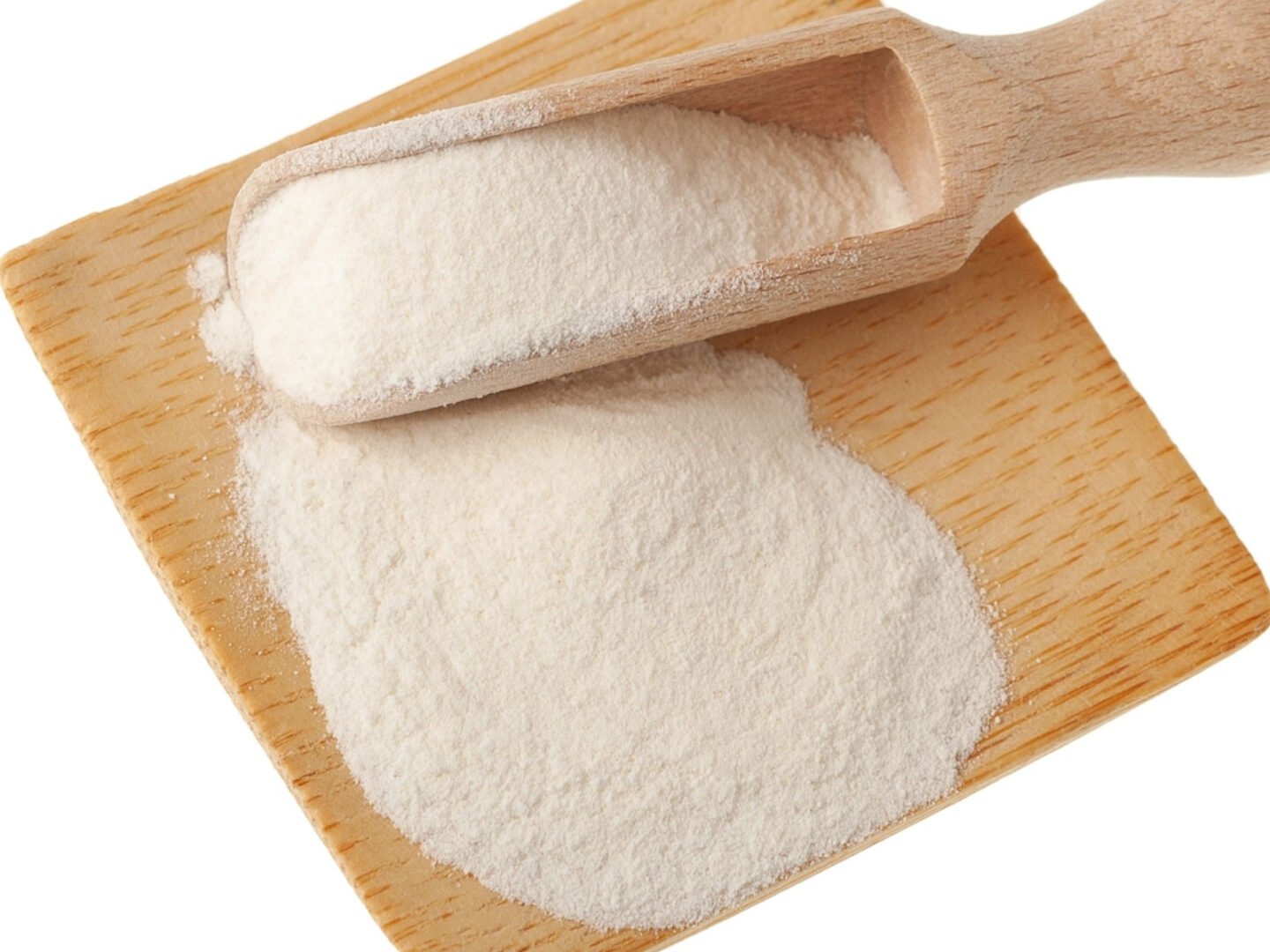
Konjac powder or flour is a well-known thickening agent in Asia. When it comes in contact with water, it can grow up to 100 times its size. It is also heat-stable, making it a perfect substitute for xanthan gum.
The biggest problem with konjac flour is that it is not easy to get in most places. But if you have it, feel free to use it.
1 tablespoon of xanthan gum = 1 and ½ tablespoons of konjac powder
12. Tapioca Starch
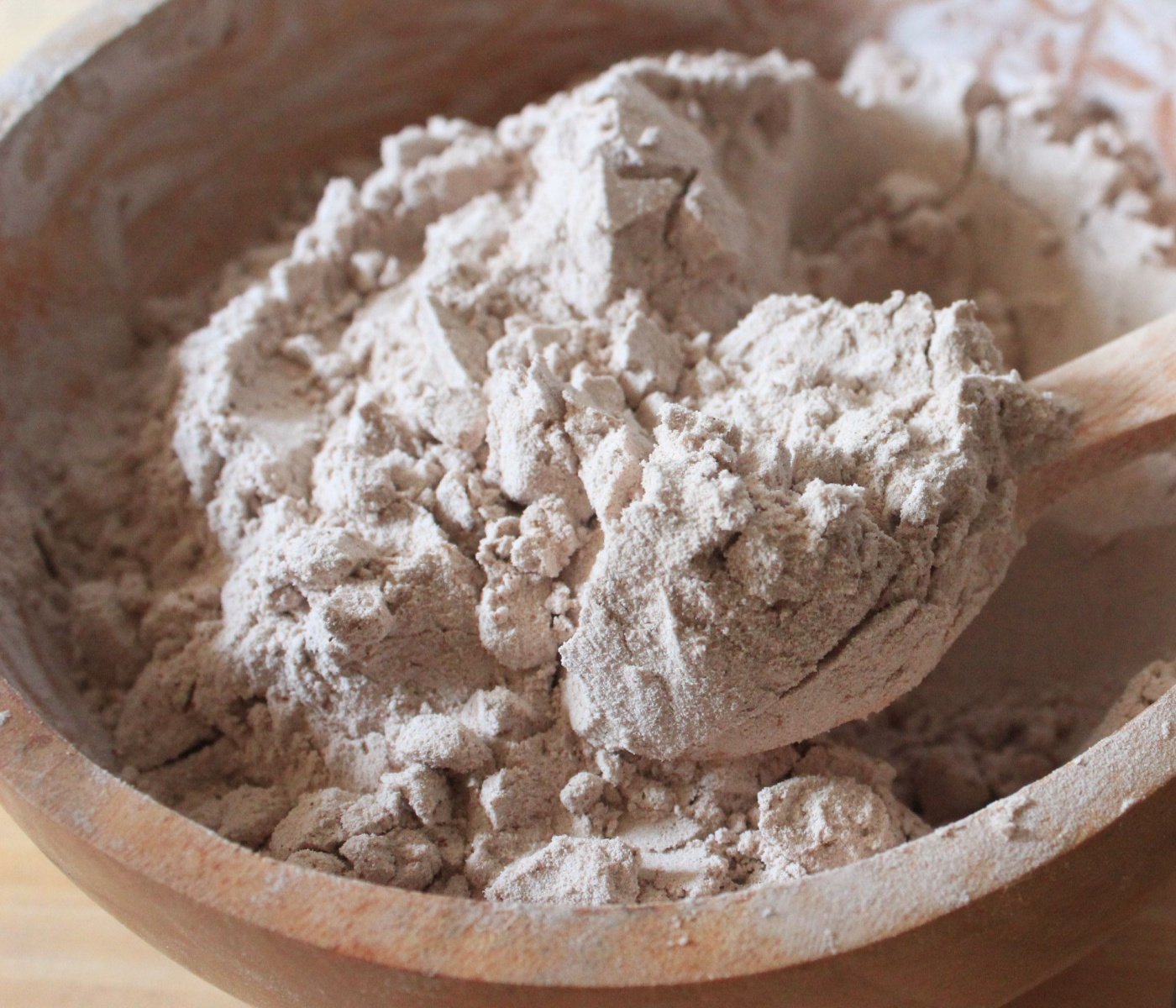
Tapioca starch is much like konjac powder but is more potent at thickening. For this reason, you only need half the amount of xanthan gum indicated in the recipe.
Tapioca starch also needs heat for activation, so be sure to cook it properly.
1 tablespoon of xanthan gum = ½ tablespoon of tapioca starch
Summary
People generally use xanthan gum as thickening and stabilizing agent in many recipes, especially non-dairy soups, sauces, and even ice creams. But if it's not available to you, you can try any of the following listed best substitutes for xanthan gum.
| Substitute | Notes |
|---|---|
| Psyllium Husk | It holds up to 50 times more water than its weight and is keto-friendly, but may cause digestion issues. |
| Corn Starch | Cornstarch is highly economical but is not keto-friendly. |
| Unflavored Gelatin | Gelatin is a smooth and affordable thickening agent, but it is not vegan. |
| Egg Whites | Egg whites are an excellent and affordable substitute for making cakes and muffins. |
| Agar Agar | Agar is a gluten-free alternative to gelatin and xanthan gum but sets firmer. |
| Guar Gum | Guar gum is an excellent thickening agent but does not mix easily with water or other liquids. |
| Ground Chia Seeds | Chia seeds are the healthiest xanthan gum substitute but need soaking before use. |
| Ground Flax Seeds | Flax seeds also require soaking and should not absorb water unless grounded. |
| Arrowroot Flour | It gives a better crunch to your cookies and pastries. |
| Pectin | Pectin is a more potent gelling agent than gum, so you only need half the amount. |
| Konjac Powder | Konjac is a powerful, heat-stable thickener that is perfect for baking and making sauces. |
| Tapioca Starch | Tapioca starch needs a longer cooking time and proper mixing to avoid clumping. |
Related Questions
People often misspell xanthan gum as xantham gum, but they are literally the same thing.
This depends on what recipe you're trying to make. You can usually get it by using eggs, but some recipes need a thickening agent.
Baking powder is a leavening agent, while xanthan gum is a thickening agent. Some recipes require the use of both ingredients, but you can’t use one in exchange for the other.

Leave a Reply